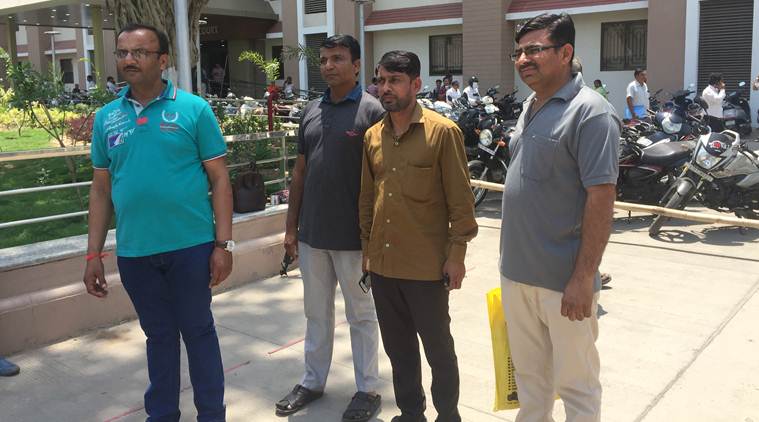
PepsiCo India Holdings, Indian subsidiary of the US food and beverages giant, on Friday gave an out-of-court settlement offer to four Gujarat farmers against whom the company has filed lawsuits, demanding Rs 1.05 crore from each as “damages” for allegedly growing and selling a potato variety registered under its name.
The company had filed the cases on Bipin Patel, Chhabil Patel, Vinod Patel and Hari Patel – small farmers in the state’s Sabarkantha district – on April 5. The company accuses them of “illegally” growing and selling FL-2027, a potato variety commonly known as FC 5, without permission. The company claims to have exclusively registered the potato variety under its name under the Protection of Plant Varieties and Farmers’ Rights Act, 2001.
The Commercial Court here extended the injunction granted against the four farmers on April 8, disallowing them from growing or selling the particular potato variety until June 12, when the case will be next heard. During the hearing, PepsiCo India suggested that either the four farmers give an undertaking declaring that they would not use the particular potato variety any longer without the company’s permission, or they could sign an agreement on a buyback system — purchase the specific variety of seeds from the company and thereafter sell the potato produced to it.
The cases and the counter
In the first such case, PepsiCo India has sued at least 11 farmers from potato-growing region of north Gujarat, alleging that they are growing ‘FL-2027’ potato “without permission”. The company says it is the registered breeder, under provisions of Protection of Plant Varieties and Farmers’ Rights (PPV&FR) Act, 2001. Cases have been filed in at least three civil courts in Gujarat since 2018. Farmer unions and NGOs organisations counter that the Act protects rights of farmers as much as breeders, and have sought withdrawal of all cases against the farmers.
Senior counsel Anand Yagnik, who appeared for the four farmers, told the court that he will discuss the settlement proposal with the farmers and inform it about the outcome on June 12. “Let us see their terms of the settlement. We will file a written reply accordingly,” Yagnik told the media later.
In a statement, the company said, “PepsiCo India has proposed to amicably settle with people who were unlawfully using seeds of its registered variety. PepsiCo has also proposed that they may become part of its collaborative potato farming programme. This programme gives them access to higher yields, enhanced quality, training in best-in-class practices and better prices. In case, they do not wish to join this programme, they can simply sign an agreement and grow other available varieties of potatoes.”
Bipin Patel, who owns 3 to 4 acres of land in Lamanpurakampa village, in Vadali taluka of Sabarkantha, told The Indian Express: “Around January 15 we got a call from an unknown person who said he will pay Rs 260 for 20 kg potato – much above the market price of around Rs 200-210 per 20 kg. I refused, as we don’t sell to unknown buyers to avoid payment problems. The person insisted that he will meet us. Three or four people came to my farm on January 29. They didn’t buy but we saw that the sting operation videos, which they have submitted in court and we received a copy, had our farms in the backdrop.”
Calling it violation of privacy, farmers’ counsel Anand Yagnik, said, “Private detectives came disguised as buyers and procured potatoes from their farms without their permission or knowledge.” Chhabil Patel, who owns 2 acres in Badolkampa village of the same taluka, said, “We were not aware of this variety, or that PepsiCo has intellectual proprietorship over it. We exchange seeds (among farmers). We are sowing this variety perhaps for the last four years, although there is no definite way to tell since one can’t differentiate between varieties. We don’t have any contract agreement anywhere; we sell it in APMC market.”
Two days ago, more than 190 activists came out in support of these farmers and requested the Union government to ask the company to withdraw “false” cases against the farmers.